
OR
I will take home the image of Nepalis cheering Pakistani team during SAG: Ambassador Javed
Published On: October 20, 2020 10:05 AM NPT By: Republica | @RepublicaNepal
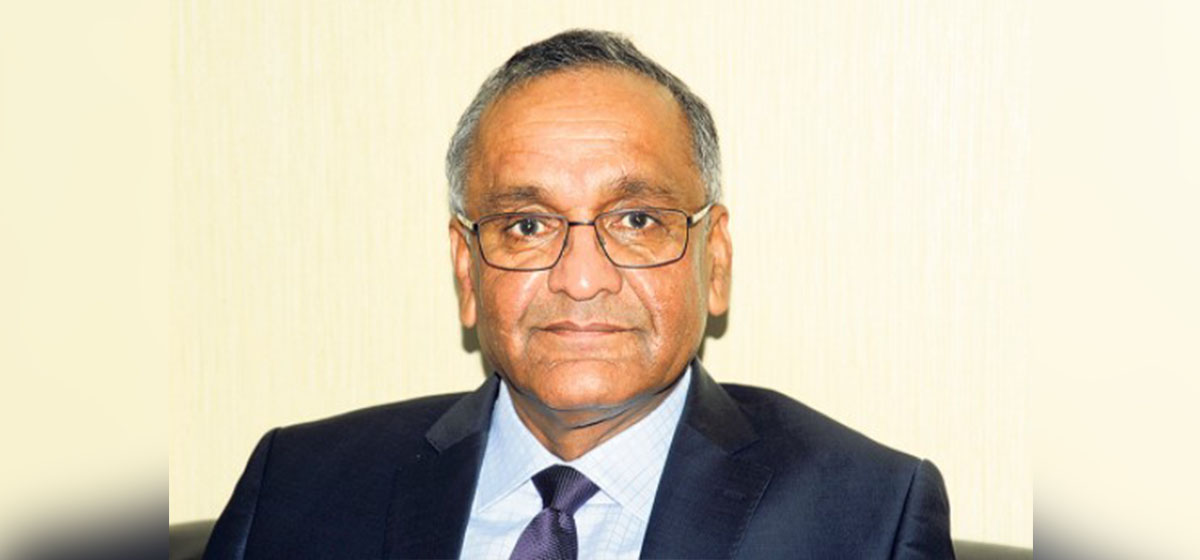
Mazhar Javed is a medical doctor by training. He has been appointed as Pakistan’s new ambassador to South Africa. Ambassador Javed came to Nepal in February, 2016, and left the country today after completing his four-year tenure. Republica sat down for an extensive interview with him last week, before his departure to South Africa.
* Nepal is an important regional country. It is a self respecting country of peace loving people with an admirable social harmony.
* Nepalis have an amazingly high level of awareness and depth of understanding of political and historical issues.
* Nepal has all the ingredients for accelerated development.
* Hundreds of Nepali youth were cheering Pakistani team, waving huge Pakistani flags during the South Asian Games in Kathmandu. That image in my mind is the impression that I will take home.
How have Nepal-Pakistan bilateral ties improved during your tenure as Pakistan’s Ambassador to Nepal? What are some of the major highlights of your tenure here in Nepal?
Every Ambassador takes professional pride in the developments of bilateral relations that take place during his/her tenure. And I am no exception. I was lucky that during my tenure, the then Prime Minister of Pakistan Shahid Khaqan Abbasi visited Nepal in March 2018. This was the first bilateral visit by a Pakistan Prime Minister to Nepal after 24 years. The visit had special importance as being the first visit by any foreign dignitary after Nepal achieved its historic milestone of establishing a federal democratic republic under the new constitution. The Prime Minister’s arrival at Tribhuvan Airport coincided with the inaugural session of Nepal’s new parliament (after the promulgation of 2015 constitution). The message of the visit was loud and clear. Pakistan rejoices in Nepal's achievements and successes.
Friendship groups were constituted in the parliaments of the two countries. That was a step towards cementing the links between the democratic structures in the two countries.
In May 2018, Nepal Army chief visited Pakistan. This was the first such visit after a gap of more than 12 years. Then there was a visit by Pakistan Chairman of Joint Chiefs of Staff Committee (CJCSC) to Nepal, the first visit by Pakistan Army’s top official.
An MoU of cooperation was signed between Nepal Academy and Pakistan Academy of Letters. Thanks to both these institutions, this MoU was being speedily implemented, until COVID-19 slowed down all activity.
I tried to highlight the historic links between the two peoples by sponsoring scholarly research work and hosting seminars on the historic connections between Takshila in Pakistan and Lumbini in Nepal. I must acknowledge the scholarly contributions made by Prof. Arun Gupto and Prof. Sangita Rayamajhi. I feel it is very important to further research these linkages.
Unfortunately the last few months of my stay were less eventful due to the pandemic. A lot was scheduled in this time frame to celebrate the 60th anniversary of Nepal-Pakistan diplomatic relations. These included high level visits, exchanges, MoUs, seminars, cultural programmes and much more. I regret having missed this opportunity to further our friendship and to showcase the warmth of our ties. But then man proposes God disposes, COVID-19 put a pause on all these plans. I am sure all these activities will take place once the pandemic subsides.
On the public diplomacy front, the Embassy regularly organized student essay writing and debate competitions, annual T-20 tournament, encouraged bright school students with scholarships and arranged medical camps, expanding their scope to rural areas.
We have not been able to tap the huge potential of economic relations between Nepal and Pakistan. What are some of the areas of mutual cooperation that the two countries should prioritize ?
The two countries can work together in the field of education, especially medical education, including post graduation. I have always urged Nepali students to explore the educational facilities in Pakistan. There already is a large number of Nepali doctors and engineers who have been educated or trained in Pakistan. Qualifications of College of Physicians and Surgeons of Pakistan (CPSP) are well respected internationally. The number of Nepali doctors availing these facilities is increasing by the day. During my tenure, I tried to get CPSP accreditation for several Nepalis hospitals. Many hospitals have been accredited, and I wish to see more having the same facility. That will allow more and more Nepali doctors to get Pakistani qualifications while continuing to work in Nepal.
Agriculture is another area with huge potential for cooperation. I visited the Agricultural University in Chitwan and have no doubt that this could fruitfully be linked to the Agricultural Universities in Pakistan. They could collaborate in curricula, research and academia. Such a collaboration would inject more substance into our bilateral relations.
Yes, the level of bilateral trade and investment has remained below the level commensurate with the strength of political relations. This needs to be enhanced. That requires increased interactions between the business communities of the two countries. I would greatly encourage Nepali businessmen to showcase and market their products in Pakistan. It is a big and a good market.
I would urge them to organize a single country exhibition in Pakistan on the pattern of “Made in Pakistan Exhibition” organized by Pakistan in Nepal. Also, Nepali businessmen should participate in international trade exhibitions in Pakistan. There are many commodities that Nepal can export to Pakistan and vice versa.
Trade interactions can be facilitated by energizing the institutional mechanisms: an early convening of meetings of Joint Economic Commission Meeting and Joint Business Council. Both these meetings were to be held in 2020, the 60th anniversary year. Unfortunately, so far, both had to be put off due to the pandemic. We should convene them once the pandemic is over. During the pandemic, virtual meetings have become a norm and become a part of our daily routine. That should make the business-to-business contacts easier in the long run.
I also feel that we need to expand our view of the trade and economic relations beyond the commodities sector. In today’s world, international trade is a much wider concept than mere trade in commodities. It encompasses services sector where we have huge potential; be it tourism, IT, construction, consultancies and so on. Most of these sectors are not as much affected by geographical distance as the commodities sector is. Then there is the huge investment sector which must be explored.
Lack of air connectivity between the two countries has been a major hurdle in the movement of people. Is there a possibility of enhancing the connectivity ?
Lack of direct flights between the two countries has made travel expensive and difficult. Tourist and other traffic between the two countries would significantly increase if there are direct flights. It would also be convenient for the students and increase people-to-people interactions. A direct flight from Kathmandu to Islamabad takes just two hours.
In recent times the aviation industry has been more concentrated in the Gulf. Many sectors that were once operated by different airlines no more exist. Unfortunately, Pakistan-Nepal is one such sector. We are, however, pursuing the matter with the airlines and other authorities in an effort to get Pakistan-Nepal direct flights resumed. Let us hope for the best.
You have always emphasized the need for regional connectivity and economic integration for shared prosperity. Given the challenges between India and Pakistan, how can the region enhance commerce and the movement of people?
A country’s economic development is closely linked to its connectivity within its region. That is what the success stories of European Union and ASEAN tell us. The appreciation of that link between economic integration and socio-economic uplift of the people is important. Pakistan is fully cognizant of that fact and endeavors to enhance its regional connectivity and integration. CPEC is the best case in point. It has opened up huge economic opportunities, and is also enhancing Pakistan’s connectivity with the West Asian and Central Asian countries.
Pakistan would also want to increase its connectivity eastward. SAARC is the vehicle for regional cooperation in South Asia. Convening of the SAARC Summit in Pakistan has been stalled for nearly four years. Unfortunately, a baseless and groundless blame game against Pakistan was put above the cause of integration. Regional cooperation agenda was mixed with bilateral issues and baseless accusations. That simply does not work. Separation of bilateral issues from regional economic agenda is a fundamental principle followed by all success stories of regional integration. Again, EU and ASEAN are two glaring examples. To state the very obvious, to reap the benefits of regional integration, one first needs to have a vision for integration and development. That is important.
That being the scenario in South Asia, connectivity and integration within the region are closely linked to prosperity and economic uplift.
Regional and global politics have seen major developments lately. How should countries like Nepal and Pakistan tread these tricky times?
Yes, regional and global politics have seen major developments lately. The world is constantly changing, and changing at a fast pace. Need of the hour is to keep pace with these changes. There have been lots of developments in recent years that have reshaped many things in the world, and in our region. The Belt and Road Initiative (BRI) has opened new ways and avenues of development and created new opportunities. Technology is a catalyst of change. Once the Himalaya was a nearly impermeable barrier. Today there are motorways and other communication options there. For individual countries, such changes bring new opportunities.
Then there are challenges in the region too. Economic challenges, climate challenges and geo-political challenges. There are challenges to peace and stability. We need to face all these challenges. Economic development hinges on peace and stability. For decades now, durable peace in the region has been challenged due to the unresolved status of Jammu Kashmir dispute. For durable peace, the dispute must be resolved as required under the UN resolutions.
For countries that yearn for peace and economic prosperity, it is imperative to make the best use of the available opportunities, and to stand for the timeless principles of peace, justice, international law and respect for sovereignty. That is important. These are the principles that should shape our vision of the world that we create for our future generations.
Is there a realistic possibility of Nepal helping Pakistan and India resolve the Kashmir issue?
The Jammu Kashmir dispute is the oldest unresolved issue on the UN agenda. The issue has been on the UN agenda now for over seven decades. There are several UN Security Council Resolutions that require the future of Jammu Kashmir to be determined according to the wishes of the people of Jammu Kashmir through a free and fair plebiscite. The real problem is the non-implementation of these UN resolutions to which the international community, including India itself, is a party. Instead of giving the promised right to the people of Jammu Kashmir, India has resorted to the worst kind of oppressive policies in this illegally occupied territory. Since August 5, the situation has further deteriorated, and deteriorated to unprecedented levels.
Non-resolution of the dispute due to India’s denial of right of self-determination has led to wars and brought India and Pakistan on the brink of war several times. This has been the biggest challenge to regional peace and stability. Regional peace and stability would remain elusive till the dispute is resolved in accordance with the UN resolutions. Any outstanding disputes must be resolved through peaceful means. That is the way to sustainable peace and good relations.
Since the right of self-determination was promised to the people of Jammu Kashmir by the international community through the United Nations, the entire international community has a role and a responsibility to play. Regional countries obviously have an added importance.
Nepal is an important regional country. It is a self respecting country of peace loving people with an admirable social harmony. They have an amazingly high level of awareness and depth of understanding of political and historical issues. People here do realize the importance of resolving all problems through peaceful means. As such, Nepal’s voice and contribution to regional peace and stability is important.
What are some of the places you visited in Nepal during your stay here? What about Nepal that attracted you the most?
I have been to several places in Nepal. Lumbini, Chitwan, Butwal, Pokhara, Daman and Parbat are some of the major places. There are many many other places that I would have loved to see. I missed the opportunity due to day-to-day engagements. All these places have their own beauty and character. But what attracted me the most was Lumbini--the birthplace of Gautam Buddha--and its surrounding areas, especially Kapilvastu and Ramagrama. Even the soil at these places smells of history that had remained wrapped in mystery for centuries; an ideal place to ponder over the past and an open book of both history and philosophy. I have been to these historical places thrice, and regret not having gone for a fourth time.
Lumbini also reminds me of Taxila (Gandhara Civilization) in Pakistan. Both the cities were contemporary in their existence, both were lost from the radar screens of history and both were rediscovered around the same time. Archeological remains in these cities speak of the links of heritage that exist between the people of Pakistan and Nepal. These linkages are much older than what people generally think.
What do you wish to see in Nepal if you come back here in ten years from now?
First thing that I would like to see after landing at the airport ten years later would be my friends. I would certainly miss them.
I would love to see a “Prosperous Nepal, Happy Nepali”. I wish to see a well developed Nepal successfully exploiting its immense full potential, especially in the areas of energy, tourism, agriculture and with a state of the art infrastructure: A Nepal that on development index is at par with the developed countries enjoying its rightful important role in the region in the emerging regional scenario. A land-linked Nepal which is well connected with its region and beyond.
And you can mark my words, my wish is not unrealistic. It is not just a wish, it is my confidence. I have all the reason to believe that it would be like that. Gone are the days when development of nations was a slow process. Now we have examples of countries that climbed up the economic ladder in a matter of two to three decades. And things, for sure will be faster in the future than they ever were in the past.
Nepal has all the ingredients for accelerated development. Look at Nepal’s natural endowments. Hard working and resilient people who have a vision for the future. Natural resources abound; tourist attractions like the Himalayas and Lumbini are big magnets for the tourists around the world; natural scenery is unmatched; and water resources with huge potential for energy generation and fertile agricultural lands. Then the whole region is changing with vast new avenues being opened for development and prosperity. That lends optimism to my confidence and wish that ten years later, when I visit Nepal, this county will have all the elements of a developed country.
What is your message for Pakistan’s incoming envoy from Nepal?
Incoming ambassador is an old friend and a seasoned diplomat. I told him that Nepal is a country with which we have no issues of irritants. That makes an ambassador’s job easy and fulfilling. He can use all his time and energies to exploit avenues for cooperation. In that friendly environment, enhancing people-to-people and public diplomacy endeavors remain pivotal to an ambassador’s job.
My message to him is simple: He is moving into a friendly environment in a beautiful land.
What impressions are you and your family taking home from Nepal? How was this posting to Kathmandu different from the rest?
My previous postings were in Europe, West Asia and the Far East. Nepal was my first posting in South Asia. So this had a different flavor and an enriching experience.
It is a great combination of beautiful scenic land and friendly hospitable people. They are welcoming and easy to be friends with. They have a special cordiality for Pakistan, like people of Pakistan have for Nepal. These ties are emotional and not transactional in nature.
An impression of the Nepali you that I would carry with me all my life is a competition at the South Asian Games where Pakistan was playing. It was a final match in a very charged environment. Hundreds of Nepali youth were cheering Pakistani team waving huge Pakistani flags. If you ask me of my impression of Nepal, that image in my mind is the impression that I will take home. Those youth taught me more about diplomacy than all the books could.
You May Like This
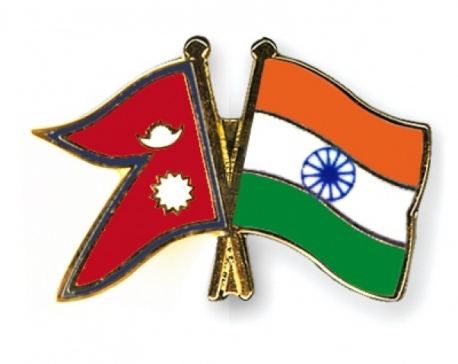
Unraveling the Tapestry: The Nuanced Relations between Nepal and India
The historical relationship between Nepal and India forms a dynamic tapestry, interwoven with vibrant threads of shared cultural, religious, and... Read More...
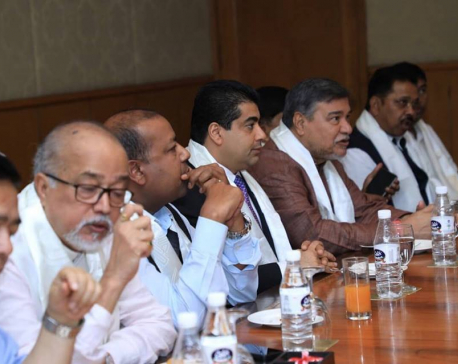
Former minister stresses on collaborations for development
NEW DELHI, Sept 4: Former minister and chairperson of International Association of Parliamentarian for Peace (IAPP) Asia-Pacific, Ek Nath Dhakal... Read More...
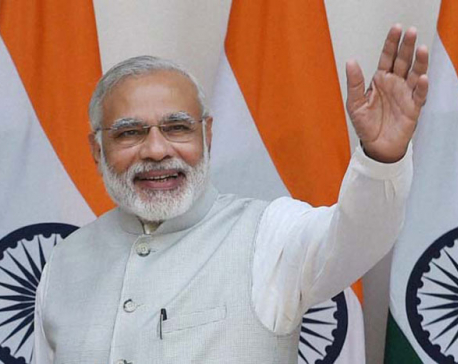
Nepal good friend of India: Deuba, India ready to support Nepal's development: Modi
NEW DELHI, Aug 24: Prime Minister Sher Bahadur Deuba, who is currently on a five-day state visit of India, said... Read More...




Just In
- NEA Provincial Office initiates contract termination process with six companies
- Nepal's ready-made garment exports soar to over 9 billion rupees
- Vote count update: UML candidate continues to maintain lead in Bajhang
- Govt to provide up to Rs 500,000 for building houses affected by natural calamities
- China announces implementation of free visa for Nepali citizens
- NEPSE gains 14.33 points, while daily turnover inclines to Rs 2.68 billion
- Tourists suffer after flight disruption due to adverse weather in Solukhumbu district
- Vote count update: NC maintains lead in Ilam-2












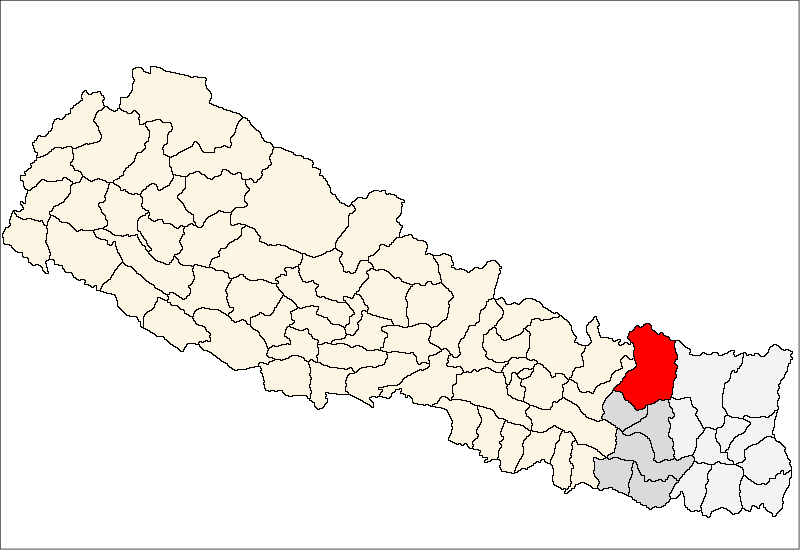
Leave A Comment